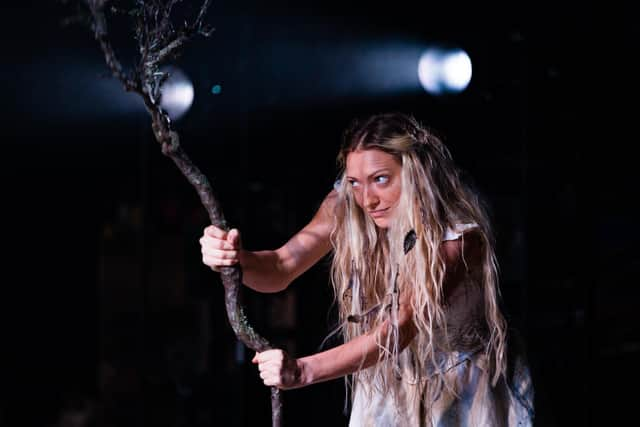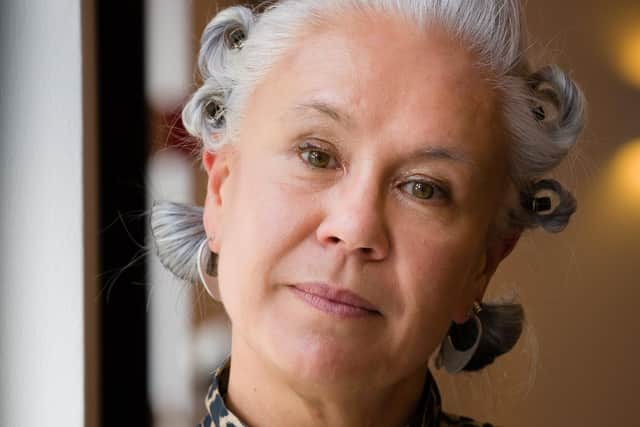Emily Brontë’s Wuthering Heights comes to York Theatre Royal in show of enduring appeal
More than 150 years since its publication Emily Brontë’s novel Wuthering Heights continues to fascinate and inspire.
It has been adapted and reimagined for stage, screen, television and radio many times – and the latest is a new theatre adaptation from writer-director Emma Rice and her company Wise Children which opened at Bristol Old Vic last month and arrives at York Theatre Royal this week.
Advertisement
Hide AdAdvertisement
Hide AdWhen Emily Brontë’s novel first appeared in 1847 under the pseudonym Ellis Bell, it was not particularly well-received. One critic found it ‘wild, confused, disjointed and improbable’ and its characters ‘savages ruder than those who lived before the days of Homer’, another thought it was ‘a disagreeable story’ and ‘a strange book’. Many reviewers condemned its savagery and violence, with one describing it as ‘a compound of vulgar depravity and unnatural horrors’. Up to a point, that is true – there are some truly shocking scenes of brutality within its pages – but it does also depict one of the most enduring literary love stories in the form of the relationship between Cathy Earnshaw and Heathcliff. It is a wild, ultimately destructive, passion that has captured the imagination of successive generations of readers.


It was an example of modern-day darkness, brutality and cruelty that prompted Rice to think about the book again. “A few years ago, I was appalled by what I saw at the Calais Jungle and at refugee camps all over the world. I was horrified by the cold negotiations our government was having about how many refugee children we would take in – horrified that this could even be a question a so-called civilised country was asking. Something sparked in my brain. Wasn’t Heathcliff an accompanied child? Wasn’t he found on the Liverpool docks and taken in by the Earnshaws?”
She says it was at that point that Wuthering Heights began to call to her again but this time as a cautionary tale about the potential consequences of acting without compassion and not treating those in need with the respect, care and kindness they deserve. “This is the driving force of my adaptation – cruelty breeds cruelty,” she says. “Be careful what you seed.”
One of aspects of the novel that Rice has come to see in a different light – and this is reflected in her adaptation – is the depiction of Catherine. “I initially saw her as the traditional tortured romantic heroine, then as a bit of a minx,” she says. “Now I think she’s unwell. I think she’s a prisoner of her time: a deeply independent women who is constrained by the limitations of being a woman in the 1800s, and who fights against those restrictions until it literally drives her mad. I’ve enjoyed exploring this way of looking at her with my brilliant leading lady, Lucy McCormick.”


Advertisement
Hide AdAdvertisement
Hide AdRice’s adaptation is very faithful to the book – many of them, including most of the film versions, finish after Cathy’s death at the end of the first half of the novel with a heart-broken Heathcliff roaring his grief, and ignoring the second part which tells the story of Cathy’s daughter, also called Cathy, her nephew Hareton and Heathcliff’s son Lindley.
That truncation has fed into the perception of the novel as being unremittingly dark – in fact, in the concluding half of her story Brontë does offer some sense of redemption, renewal and, crucially, the possibility of love and happiness for Cathy and Hareton. The ending is actually uplifting and hopeful.
“I wanted to do the whole thing,” says Rice. “In the second half of the book, we follow the next generation, Heathcliff and Catherine’s children, and we see both the effects of their parents’ cruelty and hatred, but also a glimmer of hope for the future. It helps us all find our way towards peace and love.”
The structure of Emily Brontë’s novel is famously difficult, with a back-to-front timeline and multiple narrators telling the story, effectively in flashback. For an adaptor that can pose some challenges, but Rice says that she has embraced it. “Like the book, the show opens at a point a few months before the ‘end’, and involves a few different narrators who help the audience – or the reader – through the twists and turns of the story.”
Advertisement
Hide AdAdvertisement
Hide AdEarly reviews of Rice’s production suggest that there are some great comic moments in the show reflecting the often-overlooked wry humour in Emily Brontë’s writing and observations which leavens what is, apart from anything else, an epic revenge tragedy.
“There is always humour in my shows, but, in this case, I don’t think I’ve added it,” says Rice. “I think it’s absolutely there in the text. Lockwood is one of the funniest characters in literary history. All I’ve done is make space for the light which was shining there all along.”
After a long, enforced break with projects for many working in the arts paused midway through development or put indefinitely on hold and theatres and other performance spaces closed for several months over the past year and a half due to Covid, Rice is very pleased to be back making work and collaborating again. “I missed the rehearsal room so much,” she says. “I hated lockdown; I just didn’t know what to do with myself. And I started to worry that I might have lost my touch, that I wouldn’t know how to direct any more. So it was with great joy that I got back into the rehearsal room with my brilliant and talented company, and was able to feel my way back into it. It has been a joy from start to finish and the process tasted even sweeter after the horrible absence forced upon us by the pandemic.”
While the themes of Wuthering Heights – grief, loss, love and death – are universal and timeless, Rice hopes that the production will have a particular resonance for modern audiences.
Advertisement
Hide AdAdvertisement
Hide Ad“For me, it’s about kindness and compassion,” she says. “We live in such fear these days, that our instincts are often to protect ourselves by shutting out the unknown, or by destroying it. Heathcliff is that unknown, and, treated with brutality, he becomes brutal. Only if we treat others with care and compassion can we build a future we all want to live in.”
Wuthering Heights is at York Theatre Royal, until November 20. Details and to book tickets www.yorktheatreroyal.co.uk.
Comment Guidelines
National World encourages reader discussion on our stories. User feedback, insights and back-and-forth exchanges add a rich layer of context to reporting. Please review our Community Guidelines before commenting.
